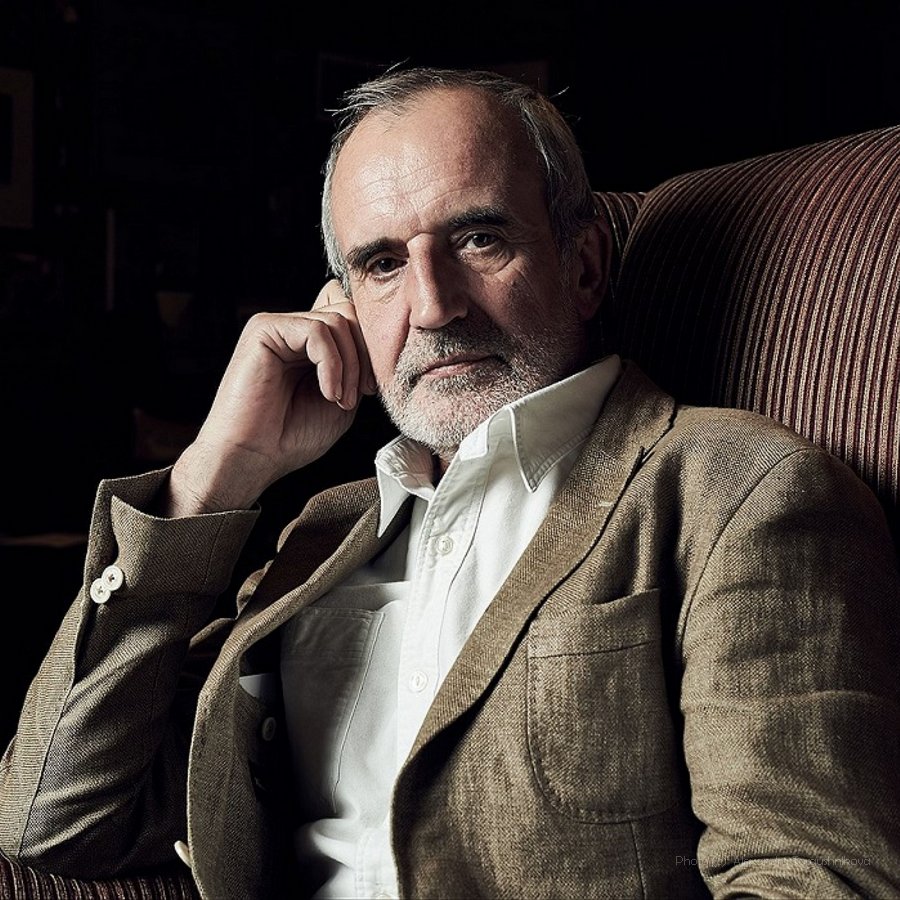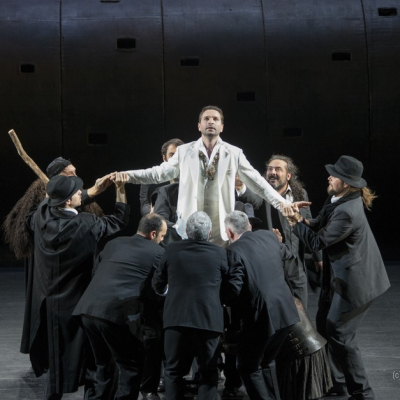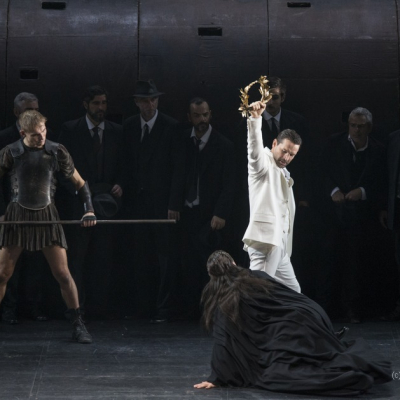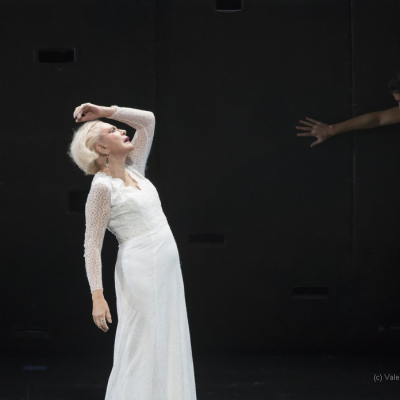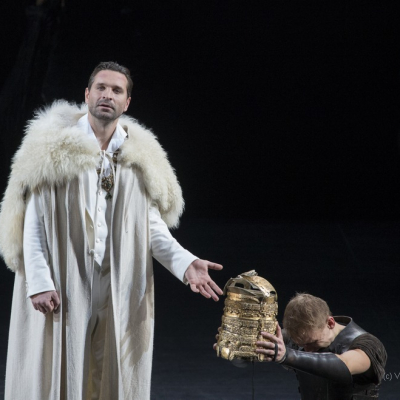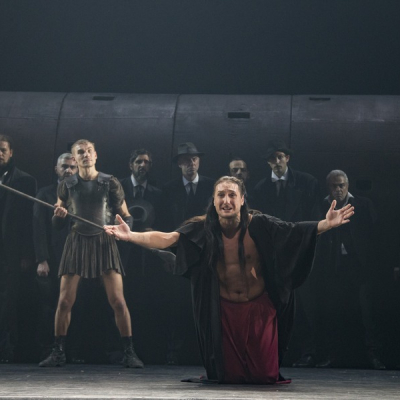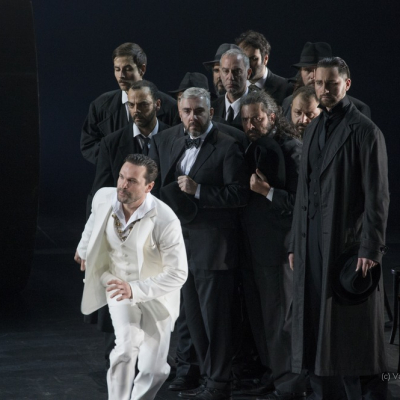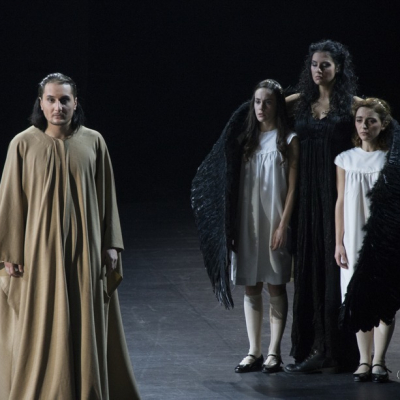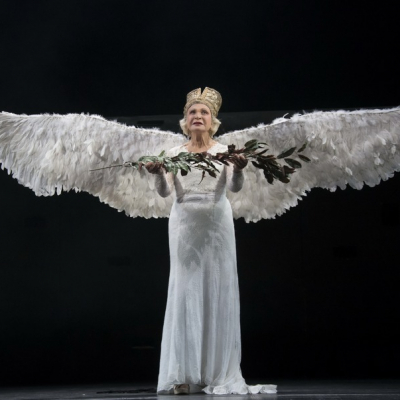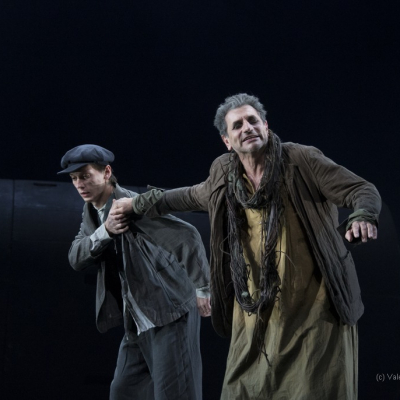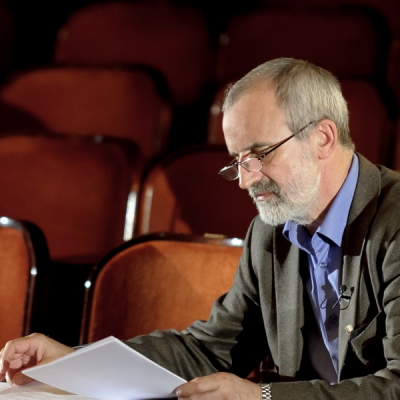OEDIPUS REX 16
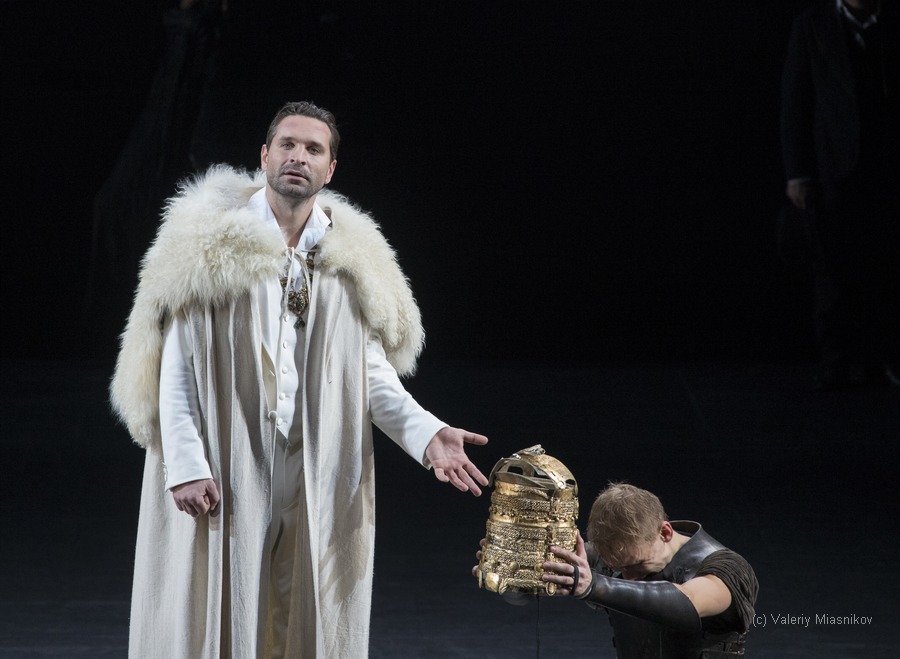
Vahtangov State Theatre, Moscow, Russia
Director: Rimas Tuminas
Performed in Russian and Greek with simultaneous interpretation in Hungarian and English.
1 hours 40 minutes.
‘Oedipus Rex’ is a cooperative project of the Vakhtangov State Academic Theatre of Russia and the National Theatre of Greece directed by Rimas Tuminas. The show suggests a bilingual form: the Vakhtangov Theatre actors perform the leading parts and Greek actors perform the Chorus.
The contemporary theatre lost understanding of what the ‘chorus’ is, and how it can be a character in tragedy or comedy. Russian theatre also does not have chorus. Only in the Greek culture of the 20th century the sense of the choral action and the understanding of the need for it was rebuilt, step-by-step.
Sophocles’ greatest skill is his ability to embody the extreme state of a human soul being torn apart, into a perfect and harmonious theatrical form, and to reinforce the storyline with clear metaphors and symbols. Aristotle used Sophocles’ tragedies as an example for all later playwrights because he perceived them as the clearest essence of tragedy. The effect of Oedipus on the whole of European culture is enormous.
We can say that ‘Oedipus Rex’ is not a tragedy of fate but a tragedy of self-discovery. Oedipus’ valour is not in his absurd determination to challenge gods and prophecies. It is seen in the fact that he did not back away from his investigation even after it became clear that he has been drawn directly into the darkness of his past, and that it might bring dangerous discoveries. After having discovered what he had done, Oedipus unreservedly accepted his destiny, mercilessly punished himself and began to live the way his crime required. The king turned into an outcast, the unhappiest one of people whose life only consisted of suffering.
Rimas Tuminas, quote: “It is the right time for the Sophocles tragedy. I wish to make a performance about the most important things: virtue and honour. A story about a leader, a man who is strong enough to recompense his own sins, to accept punishment: exile and poverty till the end of his life. Oedipus punishes himself for his crime. It’s hardly possible to find such person in our todays’ reality. Most of the men in power, leaders don’t find themselves guilty at all. Everything is approved and allowed. It’s time to remind about virtue and honour”.
Awards and prizes of the performance: Cristal Turandot Award (received in 2017), Golden Mask 2018 (nominated), Theatral Goer Award 2018 (nominated).
Cast
Victor Dobronravov - Oedipus
Liudmila Maksakova - Iocasta
Evgeny Knyazev – Teireisias
ldar Dzhanibekov - Creon
Evgeny Kosyrev – Priest
Vitalijs Semjonovs – Chorus Leader
Valery Ushakov –Corinthian Shepherd
Ruben Simonov - Theban Shepherd
Maxim Sevrinovskiy - Messenger, from the household of Oedipous
Ekaterina Simonova – Lady, from the household of Oedipous
Pavel Yudin - Soldier
Yiry Tsokurov - Boy
Chorus
ALEXANDROS NIKOLAOS BALAMOTIS
IOANNIS DENDRINOS
LEONIDAS DIMITRIOS GEORGIADIS
ANTONIOS KYRIAKAKIS
DIMITRIOS PAPADATOS
EVANGELOS PSOMAS
EVGENY PILYUGIN
Set designer: Adomas Jacovskis
Costumes designer: Maksim Obrezkov
Composer: Faustas Latenas
Composer of choral parts:Theodore Abazis
Lighting Designer: Narek Tumanian
Dramaturg & Acadenic Consultant: Dmitry Trubothckin
Αssistant director: Irina Gromova
Rimas Tuminas


